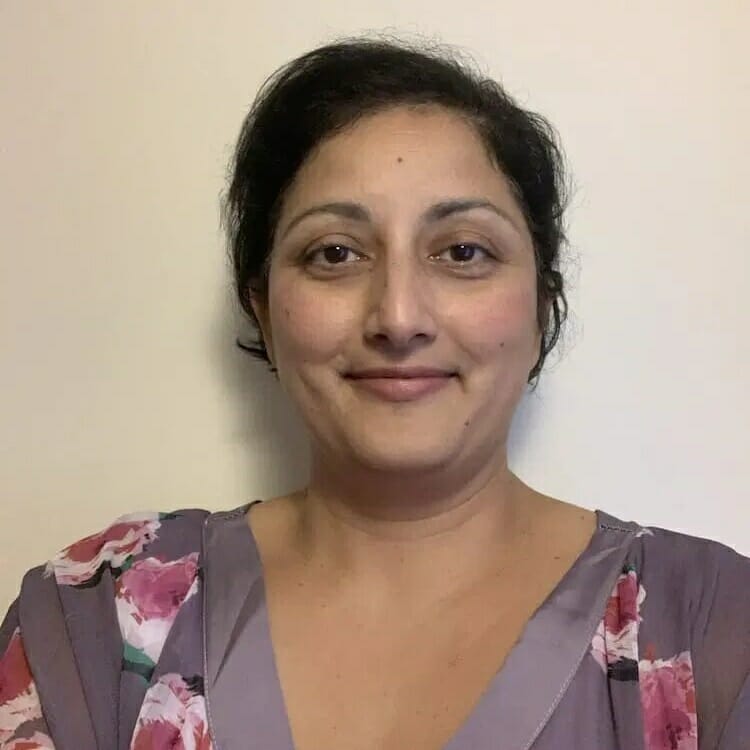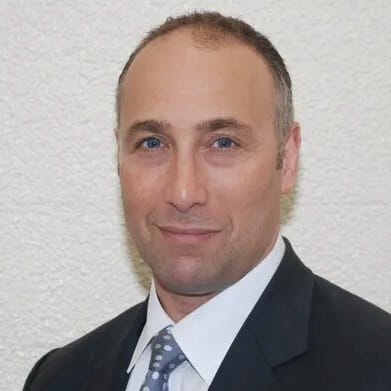London Medical Ophthalmology
Glaucoma
Glaucoma is a group of conditions that cause peripheral vision loss. It is characterised by high pressure in the eyes, which can cause damage to the optic nerve.
What is glaucoma?
Between 2015 and 2035, the number of people living with glaucoma in the UK is expected to increase by 44%. There is no cure for glaucoma, but with careful monitoring and treatment by the expert ophthalmologists at London Medical, you can minimise vision loss and protect your sight.
Understanding glaucoma
Glaucoma is a group of conditions that affect the optic nerve. The optic nerve transmits visual information from the eye to the brain. If the optic nerve becomes damaged, you will experience vision loss and potential blindness.
Our eyes have a range of normal eye pressure levels called intraocular pressure (IOP). Your IOP is maintained by the fluid located between the outside of your eye (the cornea) and the lens. This clear fluid, called aqueous humour, delivers nutrients and oxygen to the eye. If the pressure of this fluid becomes too high, it can put pressure on the optic nerve. Over time, this can cause damage to the optic nerve and lead to vision loss.
What are the different types of glaucoma?
There are several different types of glaucoma.
Open-angle glaucoma is the most common form of glaucoma. It develops gradually and usually affects both eyes. Often there are no warning signs, so it’s critical to have frequent eye exams as you get older or if someone in your immediate family has glaucoma. Visual loss from open-angle glaucoma happens gradually.
Narrow-angle glaucoma is when the drainage channel in your eye is narrow. This causes a restriction of drainage of the fluid in your eye and puts you at high risk of the channel becoming blocked suddenly. Restricted drainage of your aqueous humour can lead to high IOPs.
Angle-closure glaucoma is also called acute glaucoma, and it is an eye emergency. Acute angle-closure glaucoma is a sudden increase in eye pressure due to blocked drainage of the aqueous humour. If you experience redness, intense eye pain or nausea, you should seek immediate medical assistance.
You’ll also hear the terms ‘primary’ and ‘secondary’ used in relation to the types of glaucoma. For example, if you are diagnosed with primary open-angle glaucoma, it just means that there is no known cause of your condition and that glaucoma itself is the immediate problem.
Secondary glaucoma can develop as a complication or side effect of another medical condition. Common causes of secondary glaucoma can include:
- diabetic retinopathy
- previous eye surgery
- cataracts
- sustained use of steroid medications
- uveitis (this is called uveitic glaucoma).
Treatment for secondary glaucoma is the same as treatment for primary glaucoma.
Signs and symptoms
There are often no warning signs for open-angle and narrow-angle glaucoma, so it’s important to have regular eye exams to check your intraocular pressure. If you have a more advanced stage of glaucoma, you might start to experience changes to your peripheral vision.
Acute closed-angle glaucoma is a medical emergency, so if you experience any of the following signs or symptoms, you should seek medical assistance immediately:
- intense pain in your eyes
- redness of the eye
- blurred or reduced vision
- headache or nausea
- a halo effect around lights.
Risk factors
If you have any of the following risk factors, you should prioritise having regular eye exams to check for glaucoma. You are more likely to develop glaucoma if you:
- are older than 50
- have a family history of glaucoma
- are of African or Afro-Caribbean origin
- have hypertension
- are diabetic.
Our approach
At London Medical, you’ll receive the very best care from leading ophthalmologists at the cutting edge of their field. We bring together state-of-the-art equipment and diagnostics, a friendly and caring team and prompt treatment plans tailored to your needs — all in our comfortable and accessible ground-floor clinic.
Getting diagnosed
Early detection and regular monitoring of glaucoma is key to preserving your vision. A complete eye exam for glaucoma will take approximately one and a half hours and includes the following investigations:
- visual field test and front of eye check
- dilation to check the back of the eye
- scans of the optic nerve
- tonometry test to check intraocular pressure (IOP)
Treatment
Glaucoma is a chronic condition which means there is no cure, but the sooner you get treatment, the better your outcome will be. Although you cannot regain any sight loss you have already experienced, prompt and regular treatment can halt the progression of the disease and protect your vision.
Treatment options can be tailored to your individual needs and preferences.
Eye drops
Eye drops are the most common type of glaucoma treatment. They work by reducing the amount of fluid in the eye. There are four major classes of eye drops. Your consultant will recommend one or more drops for you. Eye drops should be taken daily and exactly as prescribed.
Oral medication
If eye drops do not reduce your eye pressure sufficiently, your consultant might suggest oral medication. This is typically a short-term approach you can take while waiting for laser treatment or other surgical treatments.
Laser treatments
Selective laser trabeculoplasty (SLT) is a low-risk, 30-minute laser treatment for open-angle glaucoma that can be performed at London Medical. You will be given a local anaesthetic to numb your eye, and then the laser treatment will open up the drainage channel of your eye to allow for more fluid to drain.
If you have narrow-angle glaucoma, your consultant might recommend peripheral iridotomy laser treatment. This treatment can improve drainage and eye pressure by creating a small hole in the iris for fluid to flow through.
Surgery
If you have tried other treatments and your pressure still remains high, you might need surgery for glaucoma. There are several methods and types of glaucoma surgery.
Trabeculectomy surgery makes it easier for the fluid to drain from the eye by removing a part of the outer coating of the eye. Aqueous shunt implantation is a surgery that implants a small tube into the eye to drain excess fluid.
Lifestyle changes
Although you may not realise it, eye health is closely associated with our overall health. If you have hypertension, high cholesterol, diabetes or other underlying health problems, you have a higher risk for eye problems.
There are many ways that you can protect and improve your overall eye health:
- stop smoking
- eat an eye-healthy diet rich in dark, leafy greens
- lose weight
- protect your eyes from the harmful rays of the sun
- manage conditions such as diabetes or high blood pressure.
As part of the London Medical family, our eye clinic has access to various specialities — all under one roof. So whether you need support with your diabetes technology, a personalised weight management programme, expert nutritional advice or help quitting smoking, we’re here to look after your whole health.
Why choose London Medical for your glaucoma treatment?
We understand that it can be challenging to live with a chronic condition. It’s natural that you don’t want to wait for prompt treatment and monitoring when your vision is at stake.
At London Medical, you’ll benefit from:
- Prompt treatment – Your all-important glaucoma checks will be booked promptly.
- Continuity of treatment – You’ll be seen by the same consultant who will know your history and carefully monitor your progress.
- Welcoming environment – Our patients tell us they appreciate the clinic’s easy ground-floor access and friendly, caring staff.
- Integrated end-to-end care – We have experts who can look after your whole health.
Our Consultants
Miss Anna Bhan
Consultant ophthalmic surgeon with specialist expertise in cataract and glaucoma surgery. Also deals with general ophthalmology and many other eye conditions.
Professor David O’Brart
Consultant ophthalmic surgeon who specialises in refractive, corneal and cataract surgery, external eye disease and glaucoma.
Our Location
London Medical is located in the Harley Street medical area. Together with top experts across a range of multi-disciplinary fields, we offer the finest facilities for your care, all under one roof.
Monday to Friday 8.30am to 8pm
Sundays - 9.00am to 2.00pm
Monday to Friday 8.30am to 8pm
Sundays - 9.00am to 2.0pm
Monday to Friday 8.30am to 8pm
Speak to a member of our team
Contact the appointments team
Make an enquiry online using this form and one of our team will be in touch. By using this form you agree with the storage and handling of your data by our team. Alternatively, you can contact us.
You don't need a referral from your GP to make an appointment with us.


